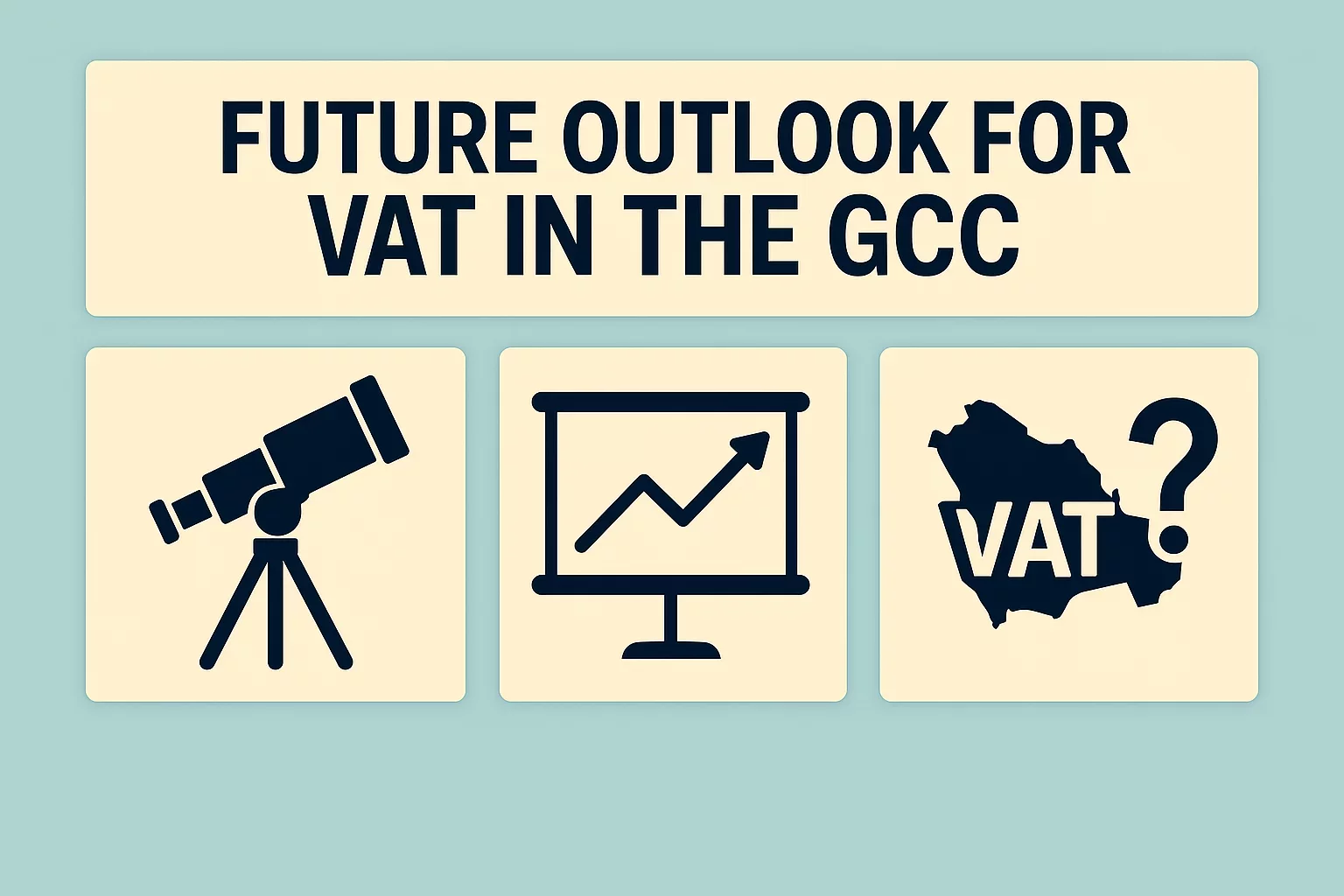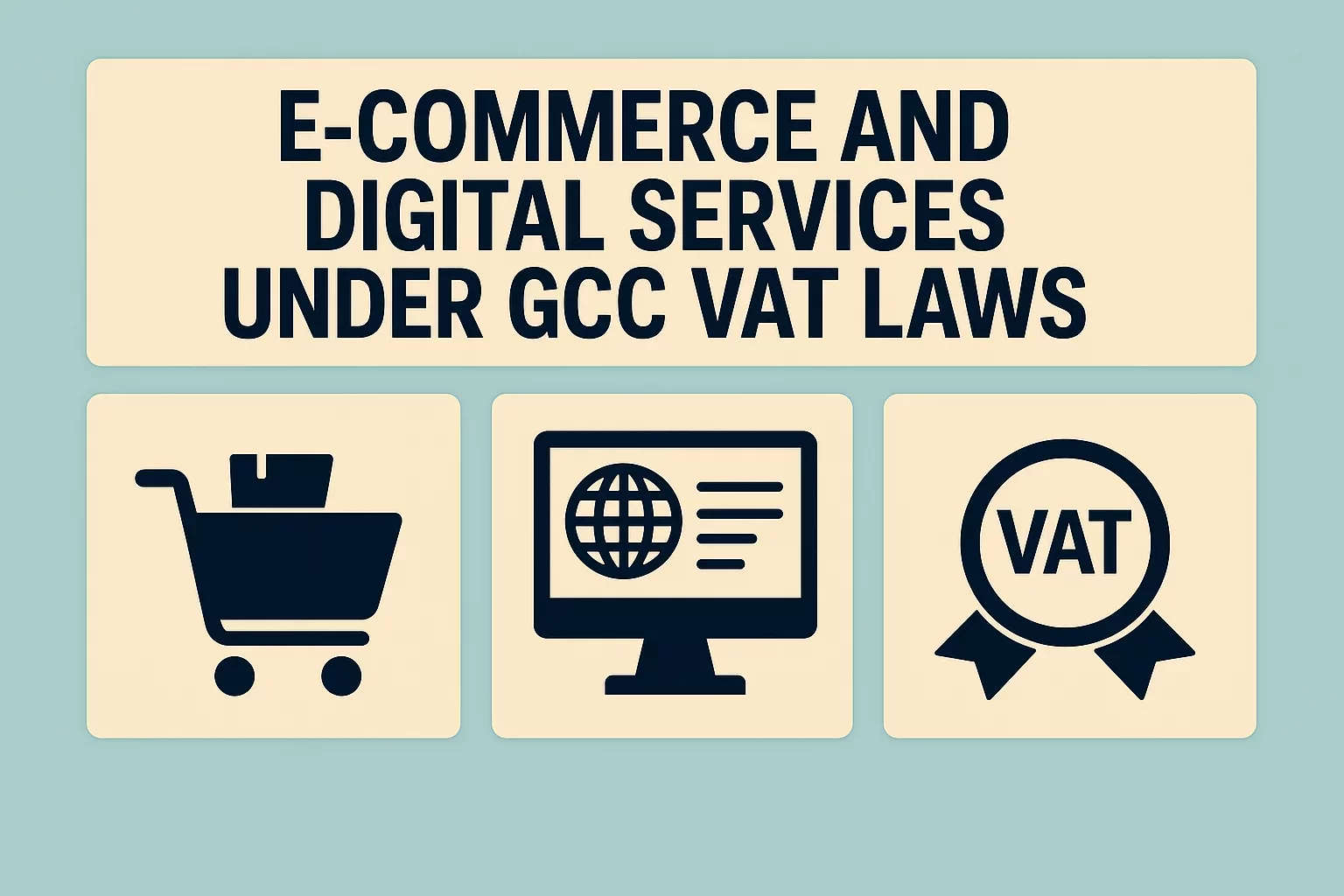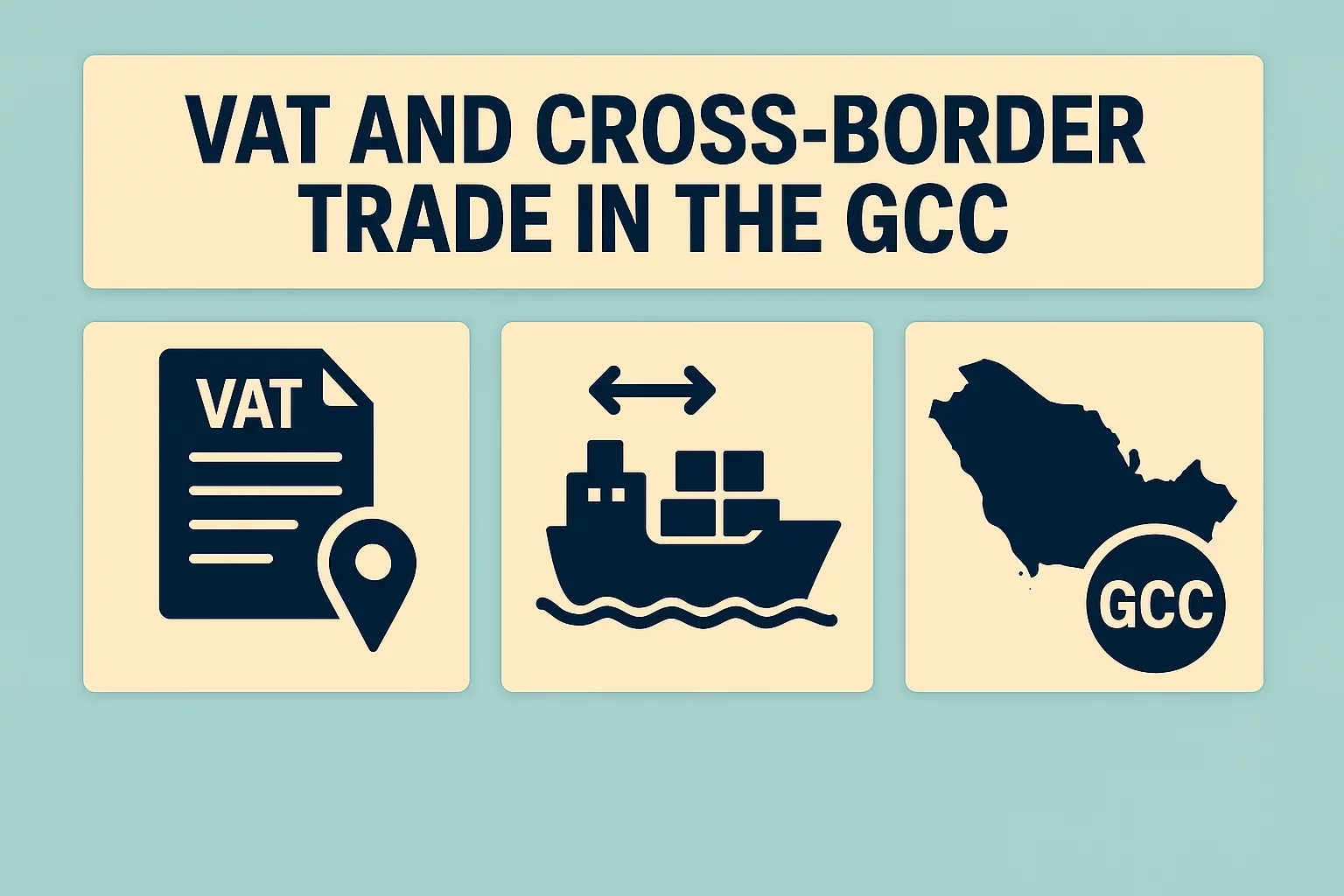Future Outlook for VAT in the GCC
Discover the future of VAT in the GCC—harmonization plans, digital tools, and evolving tax policies across Gulf economies.
Since 2018, the governments of the GCC countries have treated VAT as a central pillar of fiscal diversification. However, each GCC country has moved at its own pace in regulating this area. The central point of the common system is the GCC VAT Agreement, signed to provide a shared framework. Nevertheless, national choices on timing, rates, exemptions, and administration have created a patchwork that is steadily becoming tighter and more digital.
Accordingly, the entire region is transitioning from a paper-based compliance system to a more digitalized one, including the implementation of e-invoicing and near-real-time reporting. Businesses operating in the area or planning to start their operations there must understand the current VAT rules and regulations, as well as the announced changes, to anticipate where GCC VAT is headed next.
Key Trends in GCC VAT Development
Intending to move from oil-based revenues towards non-oil revenue streams, the GCC countries are gradually broadening their tax base to subject more supplies of goods and services to VAT. Considering that most non-oil revenues in GCC countries in 2023 came from taxes on the import and consumption of goods and services, the introduction of VAT and broadening the tax base are logical steps.
It is also necessary to underline that two out of four GCC countries that implemented VAT, more specifically Saudi Arabia and Bahrain, increased their standard VAT rates from 5% to 15% and 10%, respectively. Considering that VAT rates in the region are low by international standards, it should not come as a surprise if other United Arab Emirates (UAE) and Oman also increase their VAT rates. Additionally, the disparity in VAT rates could be further exacerbated if Kuwait and Qatar implemented VAT regimes with applicable rates higher than 5%.
The GCC countries did not remain immune to the global trend of implementing mandatory e-invoicing rules and requirements. This trend is part of the rapid digitalization, where Saudi Arabia’s e-invoicing program, FATOORA, has already progressed through several implementation stages. The UAE is following in the footsteps of Saudi Arabia and has formally initiated its own e-invoicing journey, aiming to implement a national system by 2026. Oman is another GCC country that plans to implement an advanced e-invoicing system by the end of 2028.
Changes and constant updates to VAT rules, as well as the implementation of regulations, are another notable trend among GCC countries with established VAT regimes. Since the VAT regimes in the region are still relatively young, recently established, and maturing, it is a normal step for national governments to continually work on improving them. For example, Saudi Arabia amended the VAT regulation in April 2025, including VAT grouping provisions that will take effect from October 2025.
In addition to this, national governments are continually clarifying applicable time-of-supply rules, deemed-supplier mechanics, and platform obligations, as well as sector-specific VAT treatments, particularly in the digital services and financial sectors.
Government Priorities and Business Needs
As previously mentioned, the implementation of VAT in GCC countries marks a shift towards non-oil revenues, which, in practice, should stabilize budgets and fund social investments, mainly due to the lack of a comprehensive personal income tax system. However, there are certain other factors that governments must account for when implementing VAT rules and regulations. The best examples are Kuwait and Qatar, as these are the countries that have yet to implement VAT.
Although the implementation of VAT raises revenue, as a consumer-facing tax, it may also contribute to inflationary pressure and public dissatisfaction, which is a risk that countries typically want to avoid. Additionally, as seen in the example of Kuwait, the lack of a political agreement can lead to repeated postponements. Therefore, the delay can be seen as both the consequence of political hurdles and as a means to reach some level of political peace.
Furthermore, both Kuwait and Qatar have focused on other fiscal and economic measures, such as rationalizing subsidies, implementing excise taxes on tobacco, energy drinks, and soft drinks, and pursuing broader diversification strategies. In contrast, VAT, as a measure that would directly affect household spending, has been pushed down on the priority list.
In contrast to the government's goals of increasing revenues, keeping low inflation, and preserving competitiveness as they court investment and tourism, businesses generally need predictability, simplicity, and cross-border coherence. Although the GCC VAT Agreement provides a foundation for harmonization, the differences in domestic laws, invoicing formats, refund rules, and penalties persist as an issue.
Additionally, the needs of different business groups must not be neglected. For example, large and international companies prioritize clear transition rules for any changes, robust VAT grouping options, and timely refunds to avoid cash flow strain. SMEs, on the other hand, seek business-friendly VAT registration thresholds, practical guidance, and standardized digital tools that minimize compliance costs and burdens.
Shaping the Next Phase of GCC VAT
One of the most certain expectations for the future is deeper digital control, along with continuous work from GCC countries to expand coverage and technical sophistication, thereby increasing data quality and audit reach. The increasing implementation of e-invoicing and digital reporting requirements could, over time, result in more aligned and harmonized vendor accreditation, schema standards, archiving rules, and real-time validation. Ultimately, this should reduce compliance friction for cross-border supplies and overall trade.
However, for GCC countries to achieve a sufficient level of unification, Qatar and Kuwait must implement VAT regimes and adhere to the rules outlined in the GCC VAT Agreement. Once the whole region has similar VAT rules in place, further work on developing a more coherent system may be conducted.
For example, broadening the tax base, or narrowing exemptions rather than raising applicable VAT rates, providing additional guidance on marketplace liability, digital record-keeping, and non-resident registration are key areas where GCC countries should work independently and together to create a more unified system for businesses.
What should businesses do?
The first thing businesses should consider is mapping their GCC VAT exposure and readiness for complying with existing and upcoming rules and requirements. Secondly, businesses should align their ERP and e-invoicing systems with the requirements of Saudi Arabia and the UAE, ensuring they are built for interoperability.
Furthermore, they should review contracts and agreements to determine whether they are in alignment with the changes. Additionally, businesses operating in the region should track regulatory changes affecting their business models and seek guidance from tax professionals and national Tax Authorities.
Conclusion
The GCC VAT story started with a single framework, developed to introduce unified VAT rules and requirements across the region. However, its future depends on the willingness of all countries to respect the agreements reached and to continue working on a single VAT and e-invoicing system.
While policymakers prioritize compliance and resilience without stifling growth, businesses seek to invest in systems and governance that can adapt to evolving rules, while advocating for clarity and harmonization. Regardless of whether Qatar and Kuwait will implement VAT soon, the trajectory of the VAT landscape is clear: GCC VAT is becoming increasingly digital, data-driven, and sophisticated.
Frequently Asked Questions
Both countries have delayed VAT due to substantial hydrocarbon revenues, political considerations, and public sensitivity to consumer-facing taxes. Kuwait also faces parliamentary resistance, while Qatar has focused on other fiscal measures such as excise taxes.
VAT helps reduce dependence on oil revenues, stabilizes government budgets, and funds long-term investments, especially in the absence of a broad-based personal income tax.
E-invoicing requires businesses to issue invoices electronically, enabling tax authorities to receive transaction data in real-time or near real-time, thereby strengthening compliance and audit capacity.
The region is moving toward deeper digitalization, broader tax bases, and eventual harmonization once Qatar and Kuwait implement VAT. The trajectory is toward a more sophisticated, data-driven tax environment.
Source: PwC, VATabout - UAE Ministry of Finance Opens Public Consultation on Proposed E-Invoicing Regime, VATabout - Oman Mandatory E-Invoicing Rollout 2026, EY


